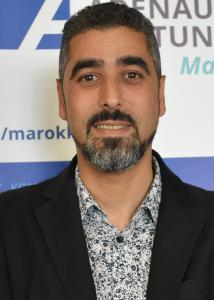The alliances of economists, engineers, and Istiqlalian doctors, in partnership with the Konrad-Adenauer Foundation Morocco-Mauritania, organized a Ftour debate on March 20, 2025, in Casablanca around the theme "Health Economy – Between Sustainability and Opportunities."
During the event, topics such as the strategic objectives of the Moroccan healthcare system, universal medical coverage, medical sovereignty, and growth were addressed and discussed.
As part of the debates, the democratization of the medical sector in Morocco and the theme of social justice in the health economy were particularly emphasized. Nizar Baraka, Secretary-General of the Istiqlal Party, advocated for a fair healthcare system, open to all citizens and extending across the entire Moroccan territory. He highlighted the importance of introducing "health cards" at the regional level. Baraka also emphasized the need to develop telemedicine, which, in his view, should facilitate access to healthcare and medical services.
Equity in healthcare is a top priority, the Secretary-General stressed, referring to the vision of His Majesty King Mohammed VI, who has made public health a constitutional right and a pillar of social justice in Morocco. The extension of health insurance to the entire Moroccan population thus ensures universal and dignified access to healthcare services.
To guarantee this universal access to healthcare, human resources in this sector must be strengthened by enhancing the value of healthcare professions and offering training programs better suited to their needs. The debates also helped clarify the relationship between the public and private sectors. Morocco needs a strong and independent public healthcare sector but one that does not perceive the success of private healthcare as a failure of the public sector.
The issue of medical research and Morocco’s pharmaceutical sovereignty also played a central role in the Ftour debate. Nizar Baraka supported reducing the country's dependence on imports to ensure long-term availability of essential medicines through local production. To achieve this, Moroccan research structures and an innovation-driven mindset must be developed.
Ahlam Narham, from the Engineering and Development Council of Morocco, also advised investing in research and proposed concrete research projects aimed at networking doctors with experts in AI and digital technology. Rajaa Arzadi, professor of surgery and member of the NMD (New Development Model) committee, highlighted the crucial role of preventive healthcare, which should be further promoted and based on four key actions: communication, awareness, vaccination, and screening.
In conclusion, the Casablanca debate showcased the Istiqlal Party’s strong commitment to reforming the Moroccan healthcare system towards greater equality and national sovereignty. These developments align with Morocco’s broader approach to modernization and strengthening social achievements.
Topics
About this series
The Konrad-Adenauer-Stiftung, its educational institutions, centres and foreign offices, offer several thousand events on various subjects each year. We provide up to date and exclusive reports on selected conferences, events and symposia at www.kas.de. In addition to a summary of the contents, you can also find additional material such as pictures, speeches, videos or audio clips.




